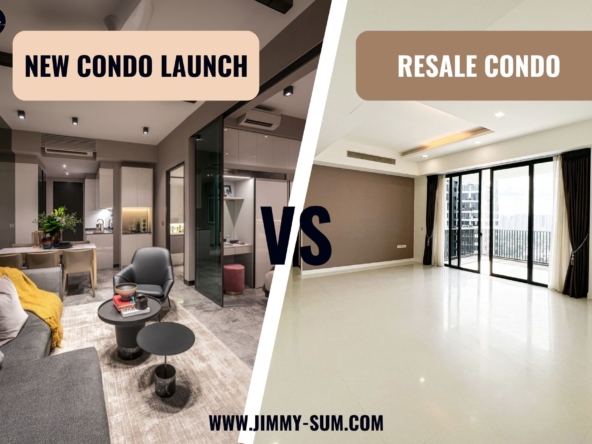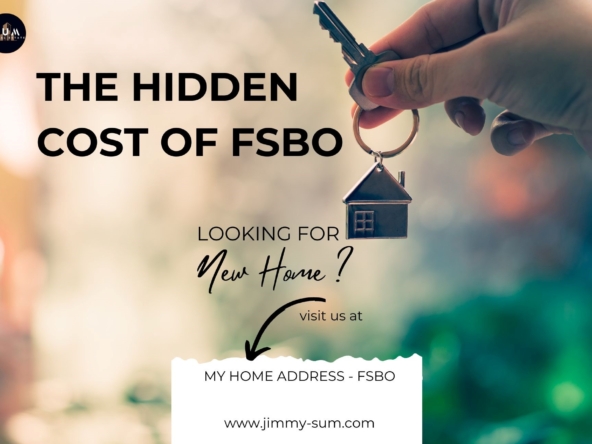Owning landed property in Singapore is a dream come true for many. With its burgeoning economy and climate of stability, Singapore has become one of Asia’s most attractive real estate markets. While the thought of buying land in this beautiful city can be exciting, it is also important to understand the legal and financial implications of owning property here.
This guide will help you navigate the process of purchasing and owning land in Singapore, from understanding the types of land to understanding the rules and regulations of ownership. We’ll also go through the cost considerations involved, so you can make an informed decision when purchasing in this bustling city. Let’s get started.
Freehold Vs. Leasehold Ownership
Two main types of landed property ownership exist in Singapore: Freehold and Leasehold. The main distinction between the two lies in who owns the actual land on which the property is situated.
1. Freehold
Freehold land in Singapore is the most popular form of landed residential property ownership. This type of land and all associated structures are owned by a single individual or group, representing 80% of all landed housing in the country.
To complete a sale, your real estate representative will handle all the paperwork for you. This is the preferred choice for buying landed property in Singapore, making it an ideal option for those looking to invest or own a piece of land in the country.
2. Leasehold
When a homeowner and landowner are separate entities, this is referred to as a leasehold property. In other word, the land ownership is different. Leasehold property tends to be 10%-20% cheaper than freehold property due to its tenure.
Types of Landed Properties in Singapore
If you’re looking to buy a landed property in Singapore, you should familiarize yourself with the available types.
1. Terrace House
For those looking for a more cost-effective option, terrace houses are great. These properties are part of the row with minimum three houses with shared walls on both sides. The middle units are with shared walls around. There is also the option of corner terrace houses similar to semi-detached houses. The minimum plot size is 150 sqm. You can expect to pay around S$1,800,000 – S$6,800,000.
2. Semi-Detached House
To own a semi-detached house in Singapore, you can expect to pay anywhere between S$3.2 million and S$13.3 million. A semi-detached house consists of two separate dwellings joined together by one wall. The layout and facade of these two dwellings are usually mirror images of each other.
These homes come as a pair. They share one wall, but the units remain completely separate. The interior designs are often identical for both units, making them look like perfect twins!
3. Conservation Houses
For many, conservation homes may not be the most attractive option. They require extensive renovations that adhere to URA’s strict guidelines, meaning you’ll need a license for nearly every renovation decision.
But these homes still hold special appeal due to their heritage status and potential value, as well as the knowledge that you own something that has been in Singapore for decades. If you invest in a conservation house, understand the renovation regulations and guidelines before committing.
4. Bungalow
Pricing of bungalows in Singapore typically ranges from S$3,800,000 – S$22,500,000. These single-detached houses don’t share walls or roofs with other units and come with yards and gardens for private property. Enjoy the ultimate luxury of owning your own space without worrying about neighbors’ disturbances. A bungalow is a great investment in Singapore and will give you the perfect home you’ve been looking for.
5. Good Class Bungalow (GCB)
Known as the height of luxury, a GCB is a land-based property with a minimum area of 1,400 sqm. This top-tier real estate commands the highest prices in Singapore – ranging from S$9,900,000 to an eye-watering S$110,000,000. Investing in this premium housing opportunity can be highly rewarding and promises to provide you with an unparalleled living experience. The GCB is the perfect option for those who want to indulge in Singapore’s best.
6. Cluster Houses
Cluster houses, like Belgravia Villa, are ideal for those who like the landed feels and the condo-like facilities without compromising privacy. Held under one strata-titled project, these can come in various forms, such as terrace houses, semi-detached, or even bungalows. However, it’s important to note that a monthly maintenance fee is usually required for the upkeep of these properties. With this comes the sacrifice of absolute freedom over reno choices, but if you’re willing to make the trade-off, cluster houses are worth considering.

What’s The Cost to Buy Landed Property in Singapore?
For the past few months, transaction prices for landed property in Singapore have risen. So, what would that mean for your pocketbook if you’re considering buying a S$3 million landed property? Let’s explore the nitty-gritty of it all.
1. Downpayment
Putting down a downpayment when buying land in Singapore is necessary. To buy a landed property, you must pay at least 25% of the full purchase price – 5% in cash and the remainder through your CPF/cash. For example, if you’re purchasing a landed property worth $3,000,000, your estimated downpayment would be $750,000 – with at least $150,000 in cash.
2. Mortgage
When you buy landed property in Singapore, you will need to factor in the home mortgage you have to pay. Unless you are paying in full for the property, most likely that you are able to take up to 75% bank loan to finance your purchase. One of the critical factors that will affect your loan amount is dependent on your Total Debt Servicing Ratio (TDSR), which considers all existing debts you may have, such as car loans and student loans. This has recently been revised from 60% to 55%, meaning that your monthly debt should not exceed 55% of your monthly income. This is important when deciding how much you can afford to pay for a property.
3. Legal Fees
Ranging from $2,000 to $3,000, legal fees are an inevitable cost that accompanies the purchase of landed or private property.
4. Buyer’s Stamp Duty
Additionally, stamp duty can set you back hundreds of thousands and is tiered according to either the purchase price or market value, especially with the change in the Buyer’s Stamp Duty after the announcement made on 24 February 2023 by our finance minister for Budget 2023.
- First $180,000 of the property – 1%
- Next $180,000 – 2%
- Next $640,000 – 3%, and
- Next $500,000 – 4%.
- Next $1,500,000 – 5% (NEW)
- In excess of $3,000,000 – 6% (NEW)
|
Formula to Calculate the New Buyer’s Stamp Duty |
|
| Property Value | Formula |
| < $1M | Property value x 3% – $5,400 |
| $1M to < $1.5M | Property value x 4% – $15,400 |
| $1.5M to <$3M | Property value x 5% – $30,400 |
| $3M and above | Property value x 6% – $60,400 |
For example, a landed property worth $3 million would require estimated Buyer’s Stamp Duty payment of $119,600. It is worth noting that this only applies to your first property. The Additional Buyer’s Stamp Duty (ABSD) must also be paid for subsequent purchases. As part of cooling measures, this was raised to 20% for your second property and 30% for the third and following properties on 27 April 2023.
5. Insurance
After investing in a landed property, it’s wise to invest in the right home and fire insurance plans. While not compulsory, major banks and other mortgage providers will require it.
With proper insurance, you’ll be protected from any unforeseen incidents – fire, burglary, or natural disasters like lightning strikes. On average, a landed property’s cost of home and fire insurance is S$500/year with coverage up to S$1 million. Take this step to ensure your property remains safe and secure.
Conditions For Citizens of Singapore Vs. Foreign Citizens
The requirements for Singapore citizens to own landed property in the country vary compared to foreign ones. The details include the following:
Citizens of Singapore
There isn’t any restriction for Singapore citizen to buy a landed property so long it reaches the legal age of 21 years old. For Permanent Resident in the country, you need to maintain your residency for at least 5 years. To gain approval on landed transactions from the Land Dealings Approval Unit, you must also have made exceptional economic contributions to Singapore and present proof of employment income that is assessable for tax reasons.
Foreign Citizens
Under the Residential Property Act, foreign citizens are not allowed to buy landed property in Singapore. But you can buy strata landed home within a condominium development.
Conclusion
Buying landed property in Singapore is an exciting endeavor. It’s a great way to invest your money and grow your wealth. While several steps require careful thought, understanding the process can make it much easier to navigate. With this guide as your source of information, you should now be prepared to make sound decisions and take the necessary steps to purchase and own a landed property in Singapore. Good luck!





